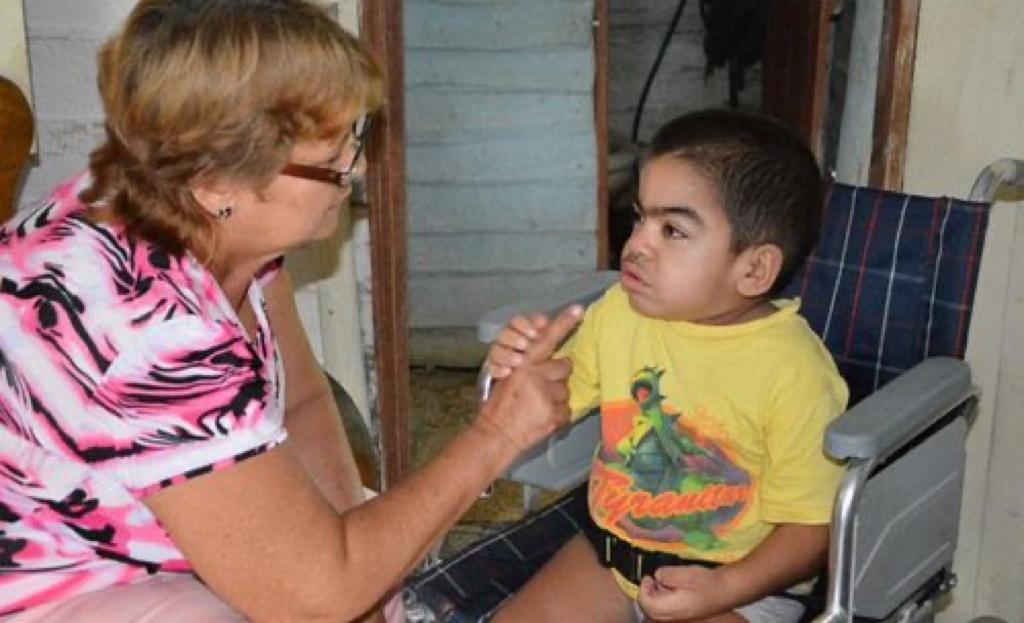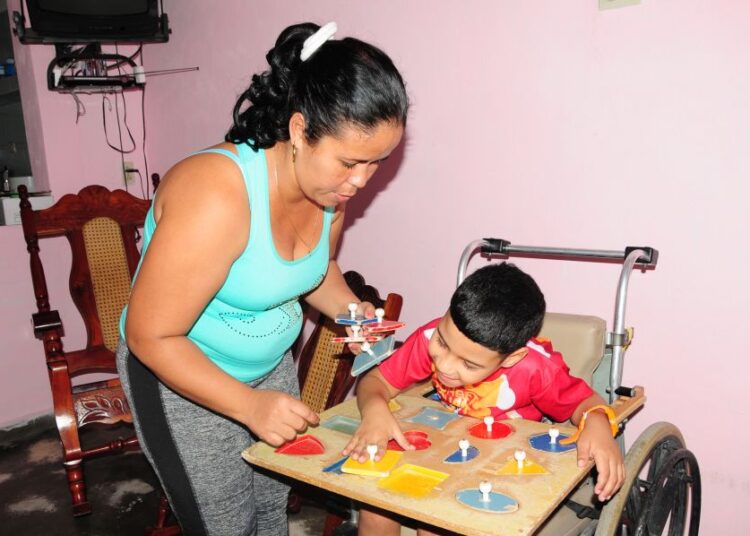Members of Cuban families with a child with severe disabilities will be able to provide care as a form of paid job, thanks to new regulations recently approved in the country.
Decree 121, approved by the Council of Ministers, establishes recognition for those who perform this role within the family. Parents, grandparents, relatives, guardians, or other support personnel may be eligible, regardless of the family unit’s economic situation, according to a report published by Granma newspaper.
Belkis Delgado Cáceres, director of prevention, assistance and social work at the Ministry of Labor and Social Security (MTSS), stated at a press conference that this step “is in accordance with the provisions of the National System for Comprehensive Life Care in Cuba.”
The official added that the new regulation updates the title of the service and expands the legal entities covered in accordance with the Family Code. In addition, the caregiver status is eliminated from the Registry of Social Assistance Beneficiaries, and their rights as workers are legally recognized.
It also defines the requirements for eligibility for the service, as well as the employment relationship between the Protection and Support Unit as employer and the caregiver.
With the approval of this regulation, the caregiver status is eliminated from the Registry of Social Assistance Beneficiaries, and their rights as workers are legally recognized. The income of families with children with severe disabilities is increased.
Requirements
The approved decree-law establishes that to be considered for this service, it is essential that the children’s disability be irreversible and permanent, preventing them from accessing the National Education System or another institutional alternative for care or employment.
“The person must require support and ongoing supervision to carry out activities of daily life, which must be endorsed by the Public Health System institution in the municipality where the person in need of the service resides,” explained Delgado Cáceres, quoted by the media outlet.

Necessary changes
According to the provisions, the authorization to provide the service will be issued by the Department of Labor and Social Security. This entity must also conduct a socioeconomic assessment of the households receiving the service, to verify whether their income covers the payment of food and basic services, or whether they require Social Assistance protection.
Following approval, a 180-day period is established for the transfer of the Social Assistance budget to the Protection and Support Unit of the Local Administration of People’s Power, as a Salary Fund for the payment of caregivers, as well as their employment records.
Among the obligations of the local departments is the review and update of the economic and family situation of the currently protected households, so that they can receive the established benefits within 90 days of the Decree’s entry into force.
“The protection units must formalize the employment relationship, guarantee compliance with the labor, social security and tax rights established by law, as well as monitor the performance of the obligations inherent to the service,” added Delgado Cáceres.
In the case of the general health departments in each municipality, they will assume the responsibility of endorsing the disability status of the children who will receive the service.
Some clarifications
The recently approved Decree establishes a certain degree of flexibility for workers hired as caregivers, as they can combine this role with other remote or teleworking jobs.
They also have the option of working independently at home, being considered as having multiple jobs, without affecting the care of the person in their care.
They must also comply with obligations, including receiving training at schools for caregivers, which are organized and operated by health departments, and are certified to provide optimal care.







